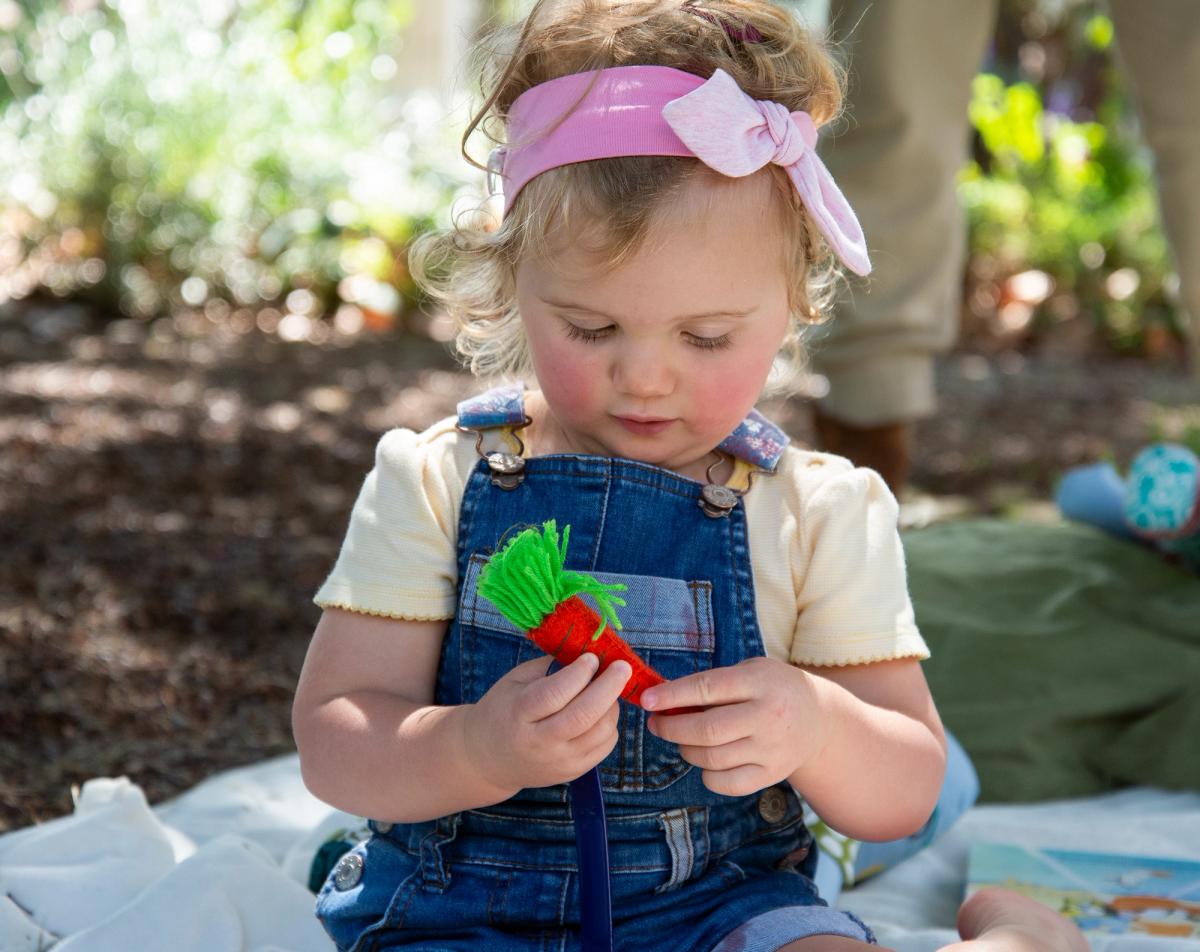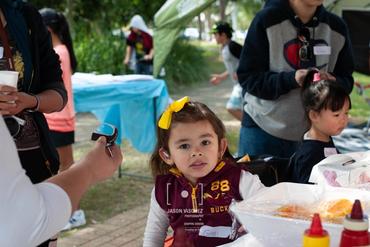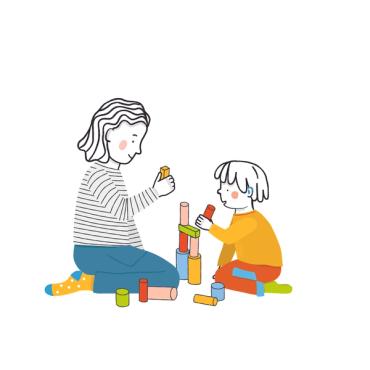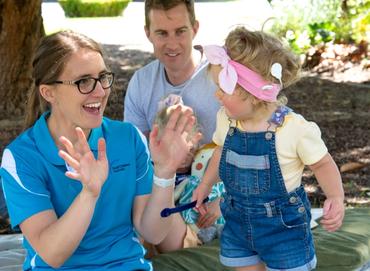Early intervention is a great way to start
Your child’s early years are a really important time for communication, language, and social-emotional development. This is your opportunity to lay crucial foundations for future learning and the forming of your child's identity.

A child’s early years
are a critical period for communication, language, and social-emotional development and lay crucial foundations for future learning and the forming of identity. This early childhood period is particularly important for deaf and hard of hearing children, whose challenges in communication and language development have been widely researched and reported.
90%
More than 90 percent of deaf babies are born to hearing parents, most of whom have had very little experience with the impact of deafness on a child’s communication and language development. In many cases, it is a challenging task for parents to understand the communication needs of their deaf child and to foster interactions that lead to strong language outcomes.
Research
Research in the early childhood field has found that deaf children’s language development is greatly influenced by early identification of their hearing loss, followed by fitting of assistive listening devices, such as hearing aids or cochlear implants and commencement in a high-qualityfamily-centred early intervention program, preferably within the first few months of life. Family-centred early intervention supports children’s development by building on families’ strengths and skills and by encouraging their positive interactions, active participation and advocacy for their children. We know that when families and communities collaborate in positive ways, a deaf child’s capacity to achieve their learning potential is significantly enhanced.
Family involvement
Other important factors that impact on a young deaf child’s developmental outcomes are the level of family involvement in their child’s early intervention program and early childhood activities and the parents’ and caregivers’ communication skills. These skills also include the use of gestures, facial expressions, body language and attention-getting strategies that support language input and enhance the quality of parent-child interactions. It is important that the whole family feels comfortable communicating with each other and that the surrounding language environment is rich, rewarding and meaningful, so the sooner parents can communicate effectively with their deaf children, the better the outcomes.
With the rapid advances in hearing aid and cochlear implant technology and access to high-quality audiological support, young deaf children are provided with enhanced opportunities to develop spoken language. However, there is also strong evidence that a bilingual approach, incorporating a spoken and a signed language, such as Auslan (Australian Sign Language), provides significant benefits for a deaf child’s language and intellectual development at critical stages in their development, irrespective of their degree of hearing loss.
A safety net
By immersing a very young deaf child in a bilingual environment with a family’s spoken language and Auslan early in their development, they are provided with a ‘safety net’ for the acquisition of at least one strong language for future learning. If a child’s first language can be acquired within normal developmental milestones, there is a much greater chance that they will be able to use their language skills to achieve to their highest potential and therefore have a wider range of educational and vocational opportunities.
There is no doubt that parents and caregivers play a major role in ensuring that their young deaf children are provided with the best opportunities to develop to their full potential and gain a strong identity. Whilst this may seem like a daunting task at first for families, the journey is rich with rewards and the establishment of long-lasting warm and loving relationships with their deaf children through effective communication is the best gift of all.
Handy hints and links for early intervention
The earlier your infant or young child starts to listen and recognise language, the sooner listening and language skills can develop. That’s why it’s so important to access early intervention services as quickly as possible after receiving a diagnosis.
Talk to your team about ways to make your home a better environment for listening. This will give your child the best chance of using any hearing they have.
Both government and private providers offer early intervention services. It’s a good idea to contact at least a couple before choosing one. Talking to other families about their choice can be helpful, but also be aware of your own needs and instincts.
If you live in a rural or remote area, you might want to look for an early intervention service provider that offers outreach services.
Don’t be afraid to ask your providers lots of questions about how to best support your child, or about any therapies or programs. It’s likely you’ll be partnering with providers for some time, so it’s important you feel comfortable and confident working with them.
When looking for early intervention providers, have a list of questions ready to help you decide whether they’re a good fit for your child and family. Some questions to ask include:
- What services do you provide and how will they help our child?
- Are your staff skilled and experienced in working with infants and children who are deaf or hard of hearing?
- Can you support bimodal/bilingual language learning?
- What changes should we expect to see in our child as a result of your services?
- How do you assess children and measure their progress?
- How do you report progress to us and other professionals in our child’s support team?
- How much do your services cost?



